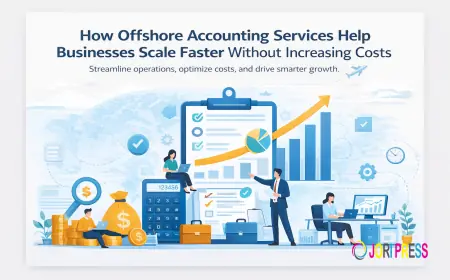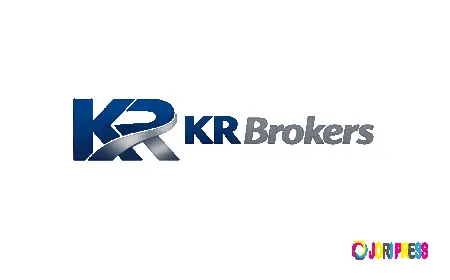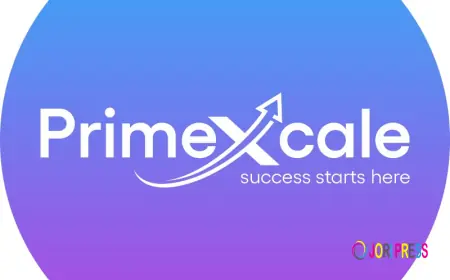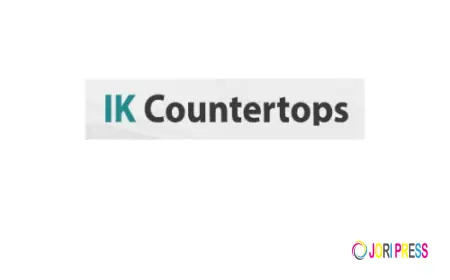How to Separate Your Personal and Business Expenses
Learn how to separate your personal and business expenses with practical tips and strategies. Avoid tax issues, maintain clear financial records, and ensure legal protection for your business.

As an entrepreneur or small business owner, managing finances is one of the most critical aspects of running a successful business. However, many entrepreneurs make the mistake of mixing their personal and business expenses, which can lead to financial confusion, tax issues, and legal challenges. Separating your personal and business expenses is vital for maintaining clear financial records, minimizing tax liabilities, and ensuring you are in compliance with financial regulations. In this article, we will discuss the importance of separating personal and business expenses, provide practical tips on how to do so, and highlight common mistakes to avoid.
Why Separating Personal and Business Expenses is Crucial
Before diving into the how-to, let’s first understand why it's essential to separate your personal and business expenses.
1. Tax Compliance
One of the main reasons to separate your personal and business expenses is to ensure proper tax compliance. Mixing personal and business finances can make it difficult to differentiate between what is tax-deductible and what is not. The IRS and other tax authorities may scrutinize your records and potentially disallow certain deductions if they cannot clearly see what expenses relate to your business operations. By maintaining separate finances, you make it easier to track deductible business expenses and minimize your tax liabilities.
2. Financial Clarity
Mixing personal and business expenses can create confusion when it comes to understanding the financial health of your business. If your personal spending is tied to your business account, it can distort your cash flow, profitability, and overall financial standing. By keeping personal and business expenses separate, you gain a clearer picture of how well your business is performing and can make more informed financial decisions.
3. Legal Protection
If your business is structured as an LLC (Limited Liability Company) or corporation, mixing personal and business expenses can jeopardize your limited liability protection. One of the primary reasons for forming an LLC or corporation is to shield your personal assets from business liabilities. However, if you co-mingle your personal and business finances, it could lead to a legal situation known as “piercing the corporate veil,” where a court could hold you personally liable for business debts.
4. Easier Accounting and Bookkeeping
Keeping your personal and business expenses separate simplifies your accounting and bookkeeping. Whether you do your own bookkeeping or hire an accountant, clear records are essential for smooth operations. When you have separate accounts for your personal and business finances, it’s much easier to track expenses, record transactions, and prepare accurate financial reports.
5. Professionalism
Separating your personal and business finances also reflects professionalism to your clients, investors, and partners. Having a dedicated business account shows that you are serious about your business and have structured your operations properly. This could instill more confidence in your stakeholders and help build trust with them.
How to Separate Personal and Business Expenses
Now that we’ve discussed why it’s essential to separate personal and business expenses, let’s explore how to do it effectively. Here are some practical steps to ensure clear separation:
1. Open a Business Bank Account
The first step to separating your personal and business expenses is to open a separate business bank account. A business account is necessary for depositing income and paying for business-related expenses, such as office supplies, equipment, advertising costs, and employee wages. It is a legal requirement for certain types of businesses, such as corporations and LLCs, to maintain a separate account.
-
Tips for choosing a business bank account:
-
Look for a bank that offers low fees and easy access to online banking features.
-
Consider choosing a bank that provides business credit cards and loans if you need access to additional capital.
-
Make sure the account provides clear statements and easy-to-track transaction histories.
-
2. Get a Business Credit Card
In addition to having a business bank account, consider getting a business credit card. A business credit card allows you to make business purchases without mixing personal funds. Just like with the business bank account, using a dedicated business credit card will make it easier to track and report your business expenses. It will also help establish your business’s credit history, which can be beneficial if you need financing in the future.
-
Tips for choosing a business credit card:
-
Look for cards that offer rewards or cashback on business-related expenses.
-
Pay attention to the interest rates and fees.
-
Keep track of credit limits and spending to avoid going over budget.
-
3. Keep Detailed Records of Expenses
Keeping detailed records of your expenses is crucial for maintaining a clear separation. Use accounting software or apps to record every business transaction. This can include payments for inventory, rent, utilities, marketing, software subscriptions, or anything else related to running your business.
-
Useful tools for tracking business expenses:
-
Febi.ai
-
Xero
-
FreshBooks
-
Wave Accounting
-
Additionally, maintain separate receipts and invoices for all business-related expenses. Store them digitally or physically in an organized manner for easy access when you need them for tax filing or audits.
4. Pay Yourself a Salary or Owner’s Draw
As a business owner, it’s essential to pay yourself in a structured way, rather than dipping into the business funds for personal expenses. Depending on your business structure (sole proprietorship, LLC, corporation, etc.), you can pay yourself through a salary or an owner’s draw.
-
For LLC or corporation owners: You can take a salary or draw funds based on the profits of the business. Make sure the salary or draw is reasonable and documented in your financial records.
-
For sole proprietors: You can transfer funds to your personal account as a “draw,” but make sure to keep this transaction separate from business expenses.
This process will help you keep your personal spending under control while ensuring your business’s financials remain clean and transparent.
5. Set Clear Guidelines for Business and Personal Purchases
Establish clear guidelines for yourself and any employees or partners regarding what constitutes a business expense. For example, business-related travel, office supplies, software subscriptions, and client meals should be charged to the business account, while personal expenses (such as grocery bills, home utilities, and family-related purchases) should remain separate.
If you're unsure whether an expense is business-related, it’s a good idea to consult with your accountant or bookkeeper. It’s better to err on the side of caution and keep personal and business finances distinct.
6. Reconcile Your Accounts Regularly
Regularly reconciling your business accounts will help you maintain a clear picture of your financial situation. Set aside time each month to review your bank and credit card statements to ensure that all business-related expenses are correctly categorized.
-
Check for any personal transactions that might have accidentally slipped through.
-
Verify that all business expenses are appropriately documented.
-
Reconcile accounts with accounting software to keep everything in order.
Reconciliation ensures that you’re staying on top of your finances and reduces the risk of mixing personal and business spending.
7. Use Separate Financial Management Tools
It’s advisable to use separate financial management tools for your business and personal finances. There are many budgeting and expense-tracking tools available, some designed specifically for business owners. Keep your personal and business budgets, accounts, and expenses in different apps or systems to prevent mixing them up.
-
Tools for personal budgeting:
-
Mint
-
YNAB (You Need A Budget)
-
-
Tools for business budgeting and expense tracking:
-
QuickBooks
-
Expensify
-
By using separate tools for both, you will ensure that you have clear financial records for both areas of your life.
Common Mistakes to Avoid
While it’s essential to separate your personal and business finances, there are a few common mistakes to watch out for.
1. Using a Personal Account for Business Transactions
Some business owners attempt to save money by using a personal account for business transactions. This can lead to significant complications during tax time and can also make it more challenging to manage finances properly.
2. Not Tracking Owner Draws or Salaries
If you don’t pay yourself a salary or properly track your owner’s draw, it can lead to confusion when it comes to tax filings or understanding your personal finances.
3. Failing to Keep Receipts or Proper Documentation
Failure to keep accurate records of business expenses can lead to tax problems. Always make sure to keep receipts and documentation for every business-related purchase.
4. Mixing Personal and Business Loans
If you take out a business loan, avoid using the funds for personal expenses. The loan should be used exclusively for business purposes, and any personal loans should be kept entirely separate.
Conclusion
Separating your personal and business expenses is a crucial practice for any entrepreneur or small business owner. It not only ensures tax compliance but also promotes financial clarity, legal protection, and professionalism. By opening separate business accounts, using dedicated credit cards, maintaining accurate records, and following the other tips outlined in this article, you can easily keep your personal and business finances distinct. Taking these steps will help you stay organized, make better financial decisions, and avoid complications during tax season.
What's Your Reaction?
 Like
0
Like
0
 Dislike
0
Dislike
0
 Love
0
Love
0
 Funny
0
Funny
0
 Angry
0
Angry
0
 Sad
0
Sad
0
 Wow
0
Wow
0
















































